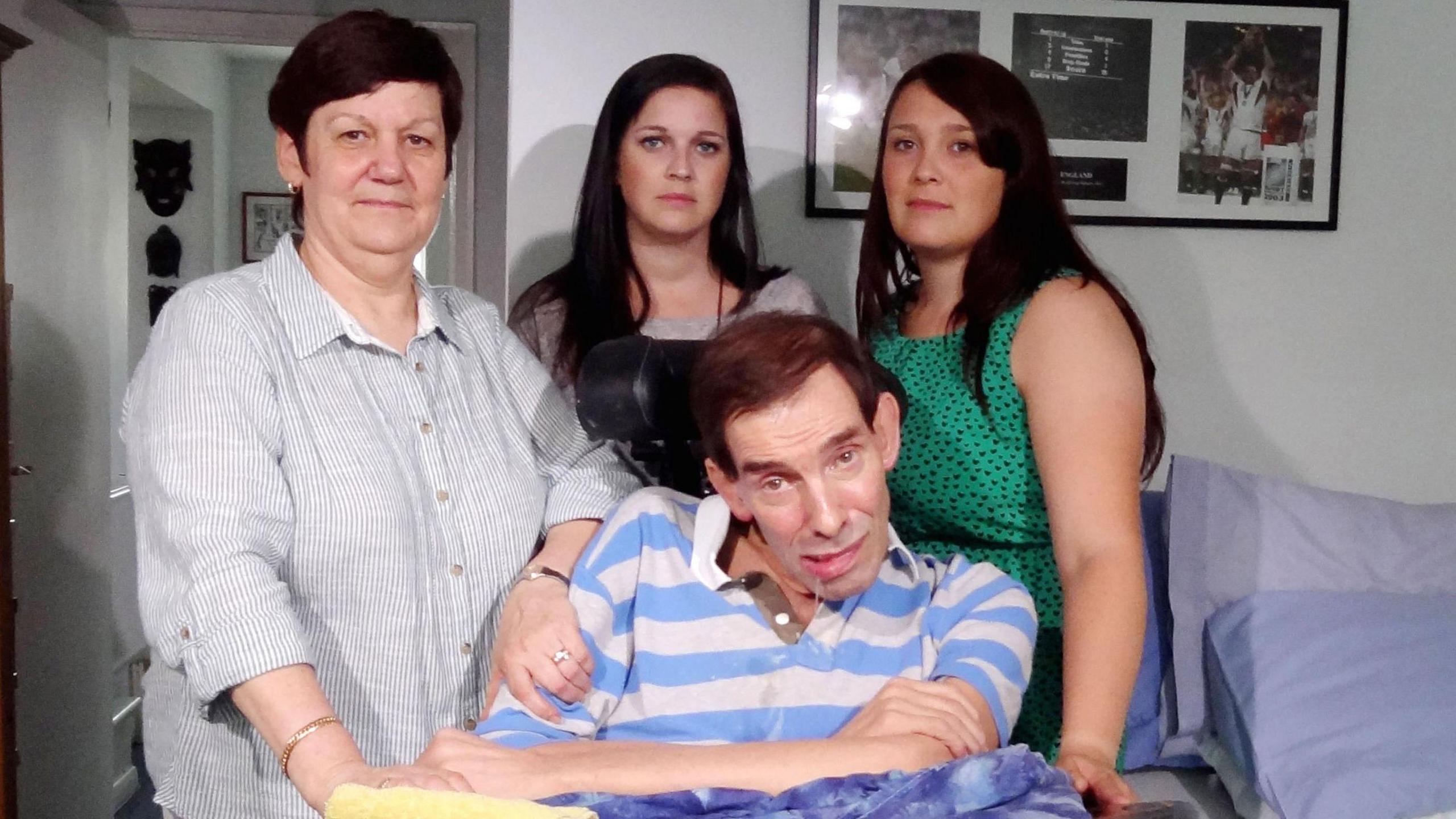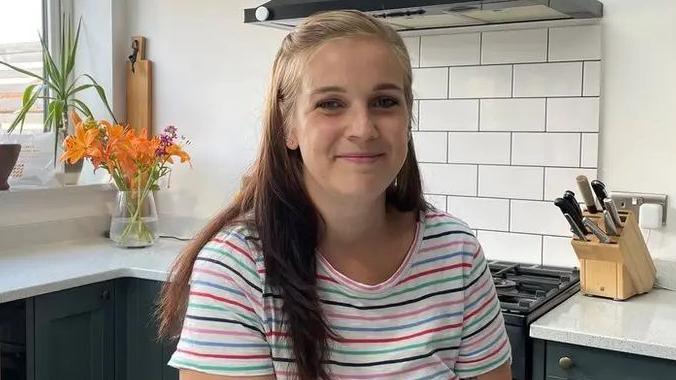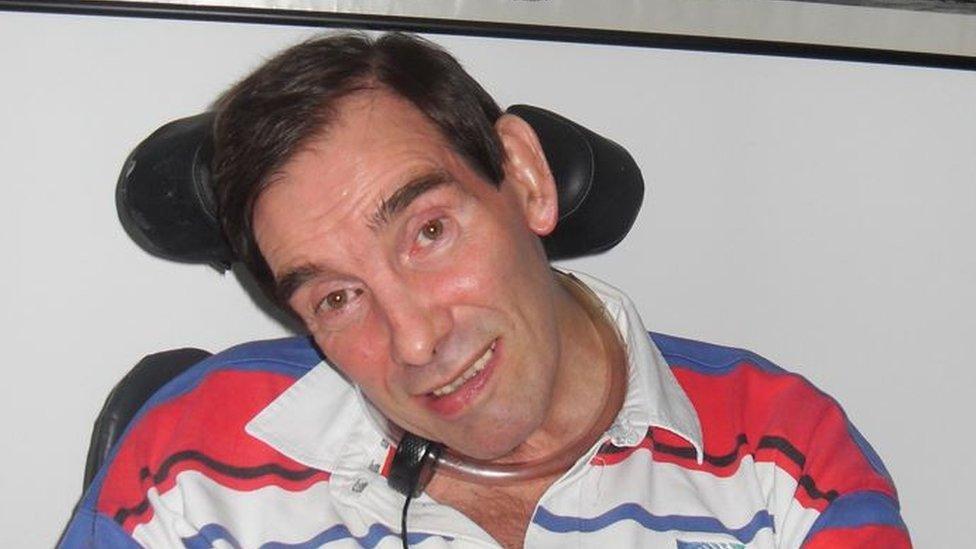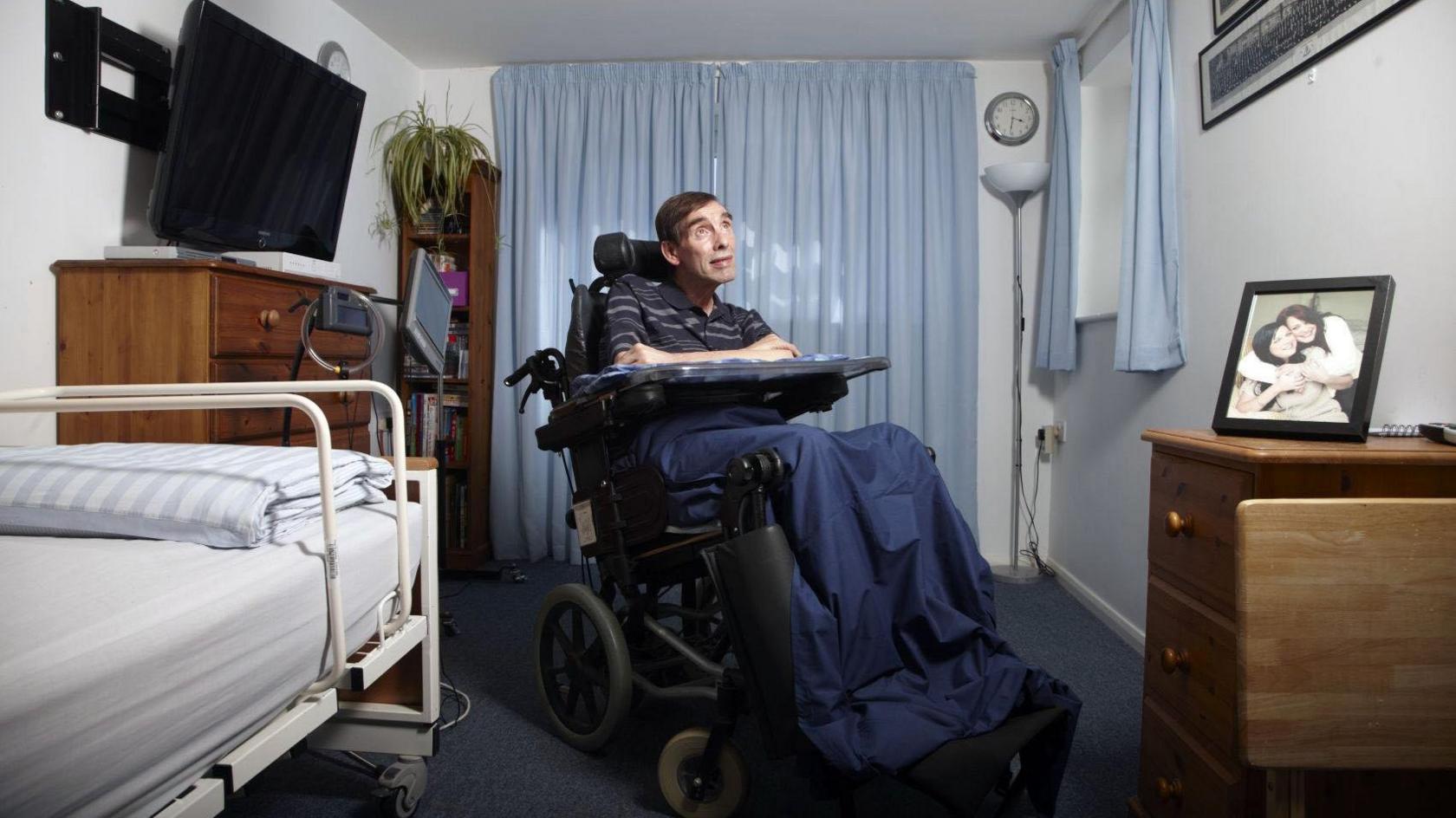Right-to-die advocate would be fuming, says family

Tony Nicklinson, pictured here with his family, died in 2012
- Published
A right-to-die campaigner would be "absolutely fuming" that more progress had not been made on legalising assisting dying, his daughter has said.
Tony Nicklinson, who had suffered from locked-in syndrome following a catastrophic stroke in 2005, died in 2012 just days after the High Court rejected his case.
His daughter, Lauren Peters, now 37 and living in Bristol, said her father, who spent years fighting for the right to allow doctors to end his life, had found the situation "intensely frustrating" and proposed legislation did not "go far enough".
A bill proposing giving terminally ill people in England and Wales the right to choose to end their lives is due to be introduced in Parliament later this week.
Mr Nicklinson's family said his condition was “the closest thing you’ll ever get to being buried alive”.
Ms Peters, who was 25 when her 58-year-old father died at home in Melksham, Wiltshire, asked: “How much more suffering does there need to be for people to sit up and realise that there is a need for this, there is public support for this?”
Details of the suggested law have not yet been disclosed but some pro-change campaigners have raised concerns the legislation might not have any scope beyond terminally ill people.

Ms Peters has repeatedly called for legislation that she says could have helped her father
Ms Peters is one of the signatories on a letter sent by campaign group My Death, My Decision calling on Labour MP Kim Leadbeater – who is bringing the private member’s bill to the Commons on Wednesday – to include those “suffering unbearably” in any legislation.
'Livid'
Ms Peters said any system put in place would need to be “incredibly heavily regulated, there’s no question around that”, but insisted it should be possible to safely give people choice.
She said: “I like to think there are people in this country intelligent enough to devise a system to support people like dad whilst protecting those who need protecting. It works in other countries. It can work here.
“Yeah, dad would be livid [at the lack of progress], absolutely livid, and he’d make sure everyone knew about it as well.”
She called on MPs, who are due to debate and vote on the issue for the first time on 29 November, to speak to constituents and research the topic - including her own father's story.
"They [MPs] might need it themselves one day, it might be their parents or their friends or their children who might experience that immense, incurable suffering. So I would encourage them to think broadly and think bravely on the issue.”
'Could feel pressured'
A spokesperson for Leadbeater said the MP had received letters and emails from a “wide range of organisations as well as people with their own experience of how cruel and unjust the current situation is”.
The spokesperson added: “There are so many deeply upsetting stories of people like Tony Nicklinson who have been let down cruelly by the law as it stands and forced to take matters into their own hands because they were denied the good death they so desperately wanted.
“She will take all views into account while drafting her legislation but believes strongly that the voices of those directly affected are the most powerful and must be heard loud and clear before MPs come to their decision.”
Opponents to changing the law have argued some people could feel pressured to have an assisted death against their will.
Archbishop of Westminster Cardinal Vincent Nichols has urged Catholics to write to their MPs to oppose proposed changes.
He has urged them to say legalising assisted dying could result in those who are near to death feeling pressured to end their lives to relieve family members of a “perceived burden of care”, to avoid pain or “for the sake of inheritance”.
Follow BBC Wiltshire on Facebook, external, X, external and Instagram, external. Send your story ideas to us on email or via WhatsApp on 0800 313 4630.
Related topics
- Published22 August 2022

- Published22 August 2022

- Published19 June 2012
